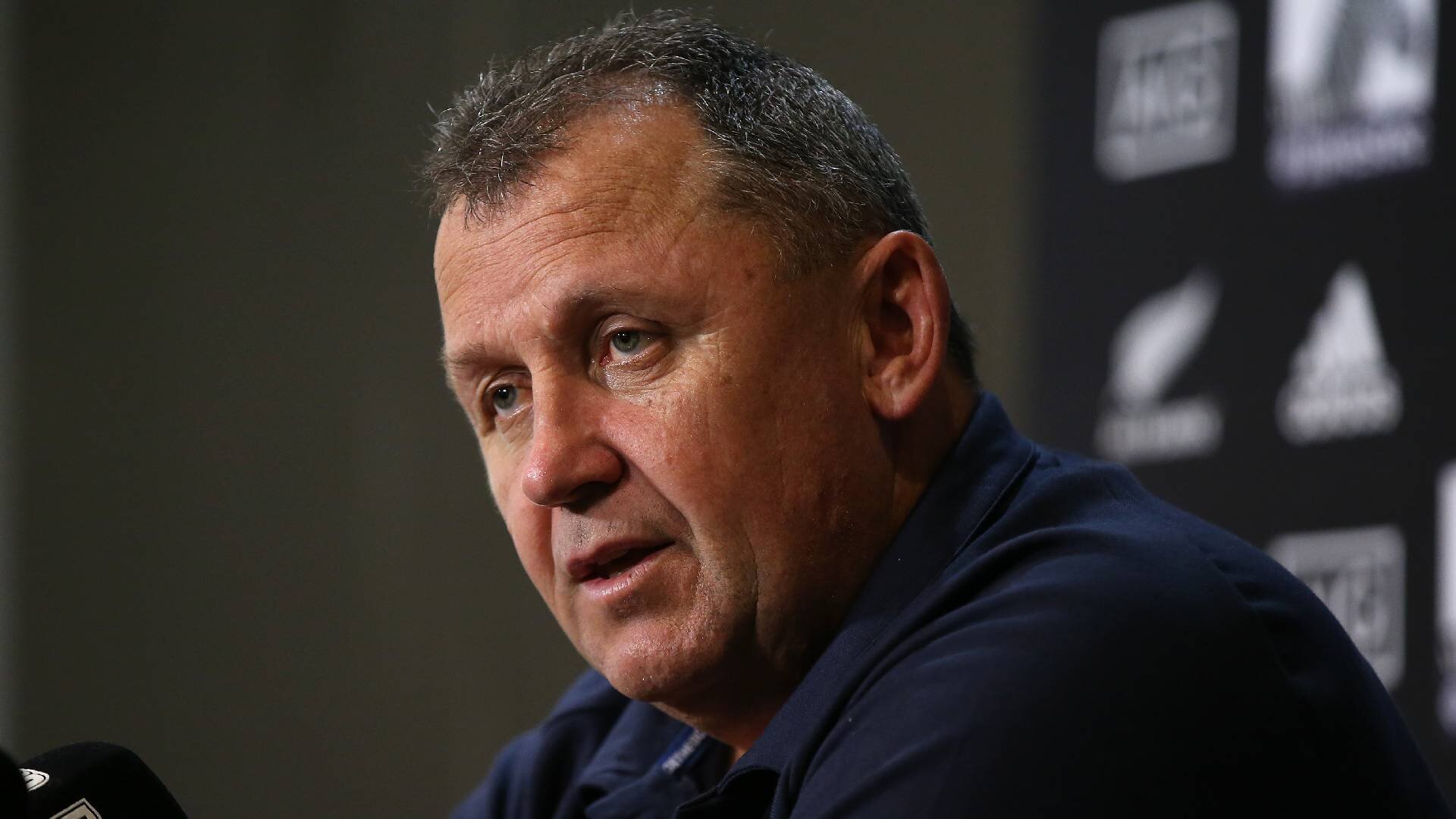'We've got our eye to the future': All Blacks prepping for changes

All Blacks head coach Ian Foster has given his verdict on World Rugby’s recently introduced laws and how his team might potentially adapt to them.
The new laws will be subject to a trial period of one year, commencing on 1st August and could potentially be introduced a year out from the World Cup in 2023.
Foster, speaking to press on Thursday ahead of his side’s clash with Fiji in Hamilton this weekend, said that the laws to be trialled were definitely something he had given thought to.
Indeed, Foster himself highlighted two of the laws to be trialled have already been seen in Super Rugby this year, with the goal-line drop out included in the Trans Tasman competition and the 50:22 operational in the AU competition. The latter in particular was of interest to Foster.
“I think the 50:22 will be the interesting one from a tactical side,” he said. “It’s obviously encouraging teams to have more defenders in the backfield covering that, which lends itself to open space. Some of the systems that we’re trying to get going now are with an eye to the future with that but it does expose you if [you] haven’t got players in the backfield.”
Who will have made the biggest strides when these two sides clash on Saturday night for the second time in as many weeks? #AllBlacks #NZLvFIJ @AllBlacks @FijiRugby pic.twitter.com/oAhx7Vp2gW
— RugbyPass (@RugbyPass) July 15, 2021
The other three laws to be trialled, stem from welfare considerations.
The first will see the introduction of increased sanctioning of clear-outs targeted specifically at the lower limbs. The second law to be trialed will outlaw the practice of multi-player (three or more) pre-bound pods, whilst the third law will tighten the definition of what is permissible in the practice of one-player latching.
Foster believed that the latching laws specifically, would serve to have an effect in altering collision areas.
“I think particularly the latching, where if you latch onto the ball carrier and end up going to ground, well that’s losing your feet, makes it like a normal ruck situation and that’s going to be really intriguing,” said Foster. “[It will be interesting to see] how it’s going to de-power that collision area a little bit. How teams manage with that is going to be interesting.”
Foster’s attention in the meantime will solely be focused on Saturday and the final test of the Steinlager Series against Fiji in Hamilton.




























































































